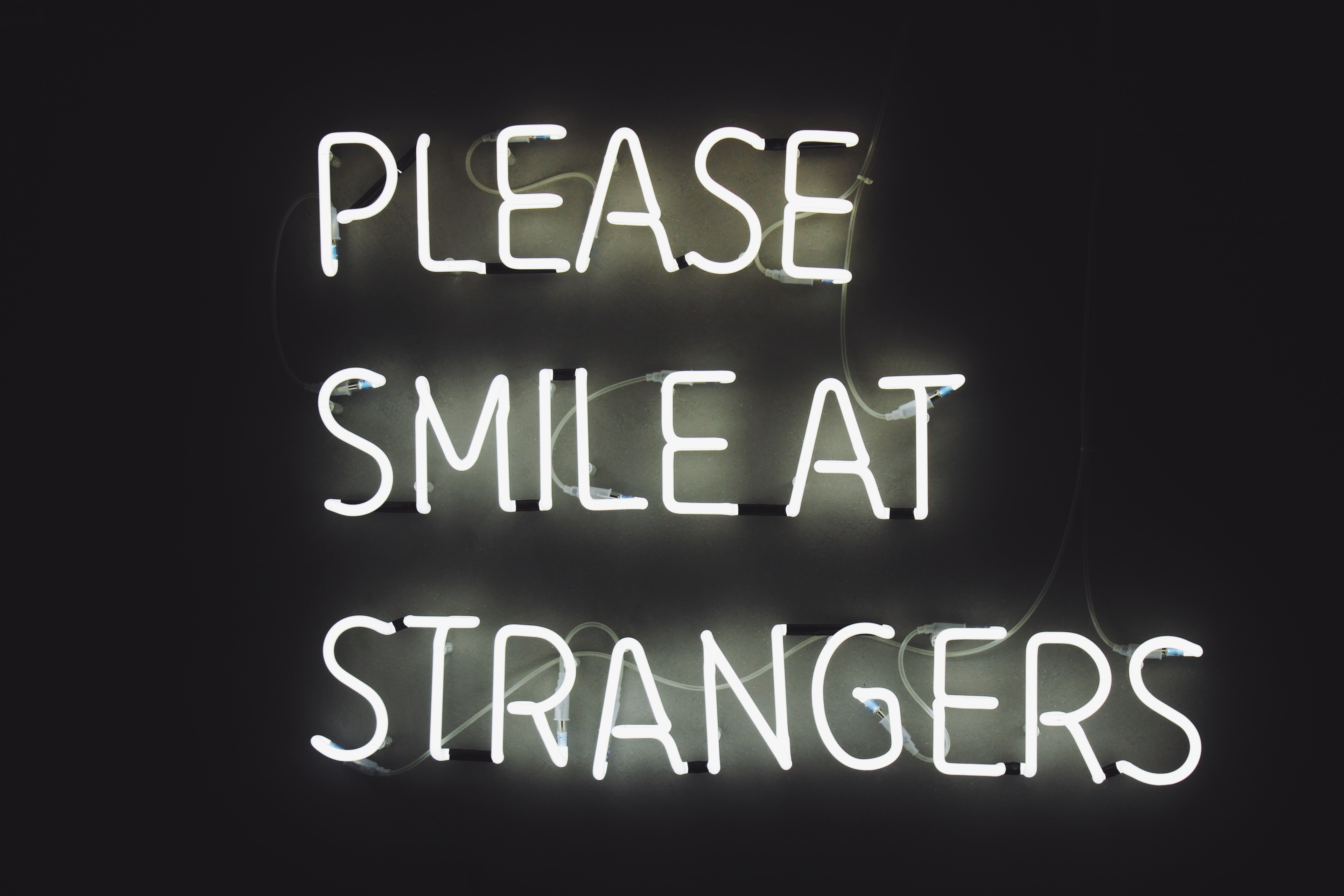 Although connecting with others increases happiness, strangers tend to ignore each other. It is could be a preference for solitude, assuming that’s the norm, believe they are “too busy” or feel anxious about speaking to a stranger. But these weak ties can have a more positive impact on well-being than people expect and short conversations with strangers can lift our moods. So why don’t we do it?
Although connecting with others increases happiness, strangers tend to ignore each other. It is could be a preference for solitude, assuming that’s the norm, believe they are “too busy” or feel anxious about speaking to a stranger. But these weak ties can have a more positive impact on well-being than people expect and short conversations with strangers can lift our moods. So why don’t we do it?
Some experts who commented for this article pointed to technology and the challenges of connecting when the default for people is talking through a screen. “People are not practiced in how to have an awkward conversation or the norms of chatting with strangers in line,” said Marisa Hendrickson MA, LMHC. “Instead of having downtime or nothing else to do, everyone is in their own world at all times with their personal device. There is no longer a need to connect with strangers, we can stay occupied and connected online no matter where we are. People feel ‘connected’ all the time through social media, but no one is truly opening up or presenting their real self.”
Katie Wock, a life coach, points to a non-technological explanation: human nature. She asks “Do we always do things which are good for us? How many people can say they get 64 ounces of water per day or only eat two slices of pizza instead of pounding the whole thing by themselves?”
Admittedly, we can be lazy. “Our brains are hardwired to find the simplest way possible to complete a task,” added Wock. “Think about when you complete a difficult task. You feel a sense of accomplishment, happiness, less stress, etc. Our brain likes this feeling. Accomplishment releases dopamine. You know what else releases dopamine? Thinking about how you will complete a task. It's why we like watching cleaning and organizing videos on YouTube. If a person thinks about talking to a stranger, the brain may start to release a small dose of dopamine. The person feels accomplished. Without actually connecting. So the brain gets the satisfaction of a dopamine release without actually doing anything.”
“Logically, we know it is good to connect with others,” says Wock, “and many of us are aware there is a loneliness epidemic, but people are afraid of talking to strangers. They fear rejection and it is a rejection of not only you as a person, but your very real human identity.”
Dave Wolovsky, a mind-body teacher, believes there is a gradient of connection. He says “knowing exactly how much to emotionally expose yourself to someone else is a challenge. Connection means two people meeting at the same level of exposure. If it's unbalanced, someone gets rejected. That can hurt a lot.”
Whether or not connecting with strangers is beneficial may depend on where people are in their lives and whether they already have connections. “If we feel lonely, isolated, depressed and anxious, then one more disconnection is not something we can easily bear. If are generally well connected to others in our life, which gives us emotional strength, then we can take more risks of opening up to other people because we have safe anchors already.”
Ron Blake took explored the benefits of talking to strangers by taking it to the streets. He spent 11,000 hours over 1,360 days researching the topic of connecting with strangers. It was his therapy to overcome PTSD.
Blake walked up to 29,541 total strangers on his cross country journey during that time and initiated a conversation with tens of thousands of complete strangers. He said, “They shared their stories back with me on 455 giant foam poster boards I take with me.”
From his experience, he provides a simple explanation to why people hesitate to speak to strangers. Blake says, “It is the fear of the unknown that stops people from doing this with each other. It is no different than why people fear death...it is the unknown.”
He went beyond the conversation and invited strangers to interact with him by sharing a written message on one of his foam boards. “Each time these strangers signed their stories on my giant boards; it came to represent a moment of fear that was overcome...not once...but twice. By them and by me. Each time. I gave a TEDx talk about this and there was an Emmy nominated documentary produced by a group of journalists who followed my journey to see what it has been like to initiate conversations with strangers.” Perhaps we all can take a page from Blake’s book and venture out of our comfort zones to invite strangers to engage. Or at the very least, say 'hello'. That's one way to potentially feel better without side effects.
Tina Arnoldi, MA is a marketing consultant and freelance writer in Charleston SC. Learn more about her and connect at TinaArnoldi.com